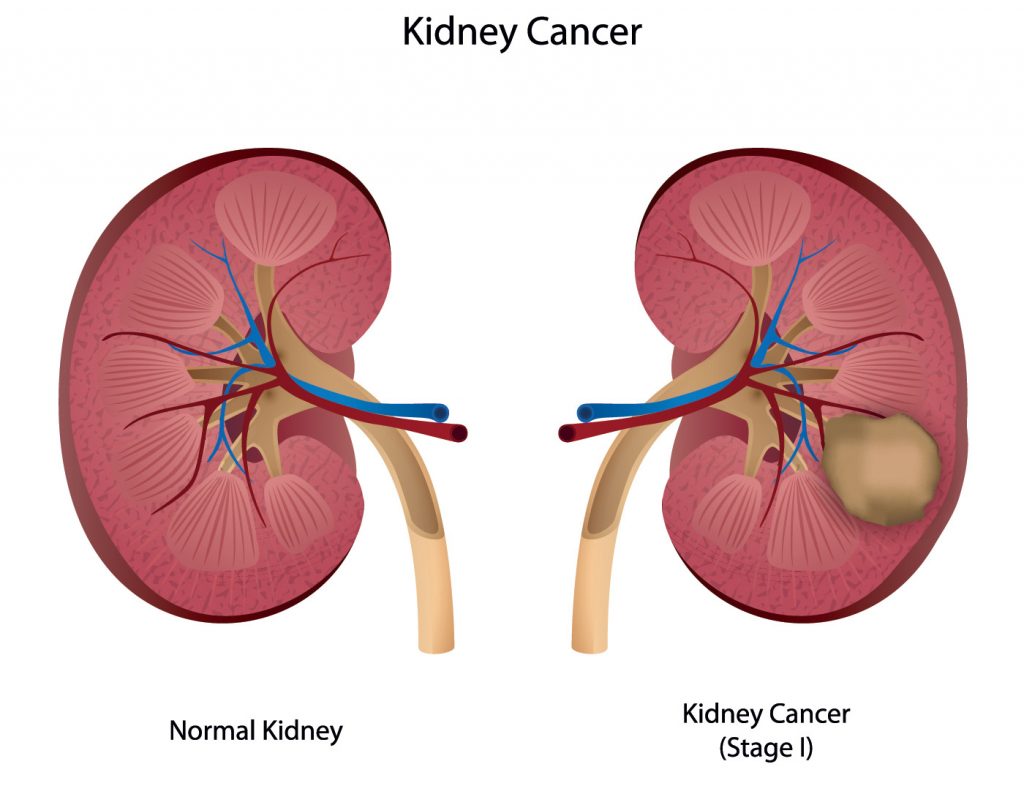
It is estimated that about 1.6% of people will be diagnosed with kidney cancer at some point in their lives. There are several types of kidney cancer. Renal cell carcinoma is the most common.
The kidneys filter wastes and excess water from the blood, maintain electrolyte balance, and produce certain hormones.
Kidney Cancer Risk Factors
The exact cause of kidney cancer is not known. However, there are several types of risk factors for developing kidney cancer including hereditary, environmental, health and lifestyle factors. Factors which put you at higher risk for developing kidney cancer include:
- Being male
- Being over 60
- Being black
- Family history of kidney cancer
- Certain genetic conditions including von Hippel-Lindau (VHL) disease and inherited papillary renal cell carcinoma
- Lymphoma
- Advanced kidney disease or long-term kidney dialysis, it is not known if the disease or the treatment increases the risk
- Exposure to toxic substances including arsenic, asbestos, benzene, cadmium, certain herbicides, and trichloroethylene (TCE)
- Smoking
- Obesity
- Long-term us of non-aspirin non-steroidal anti-inflammatories (NSAIDs)
- High blood pressure or taking high blood pressure medication, it is not yet clear whether it is the condition, the medication or both that increase the risk
Kidney Cancer Symptoms
Unfortunately, kidney cancer rarely produces symptoms in the early stages when treatment is most likely to be successful. There is no routine screening for the cancer. When it is caught early, it is often spotted by chance on a test for something else. Symptoms in later stages of kidney cancer can include:
- Blood in your urine
- Continuous pain or pressure in your side or back near the kidneys
- Lump in your side, back, or abdomen
- Swelling of the ankles or legs
- High blood pressure
- Extreme fatigue
- Loss of appetite
- Unexplained weight loss
- Persistent unexplained fever
- Anemia
